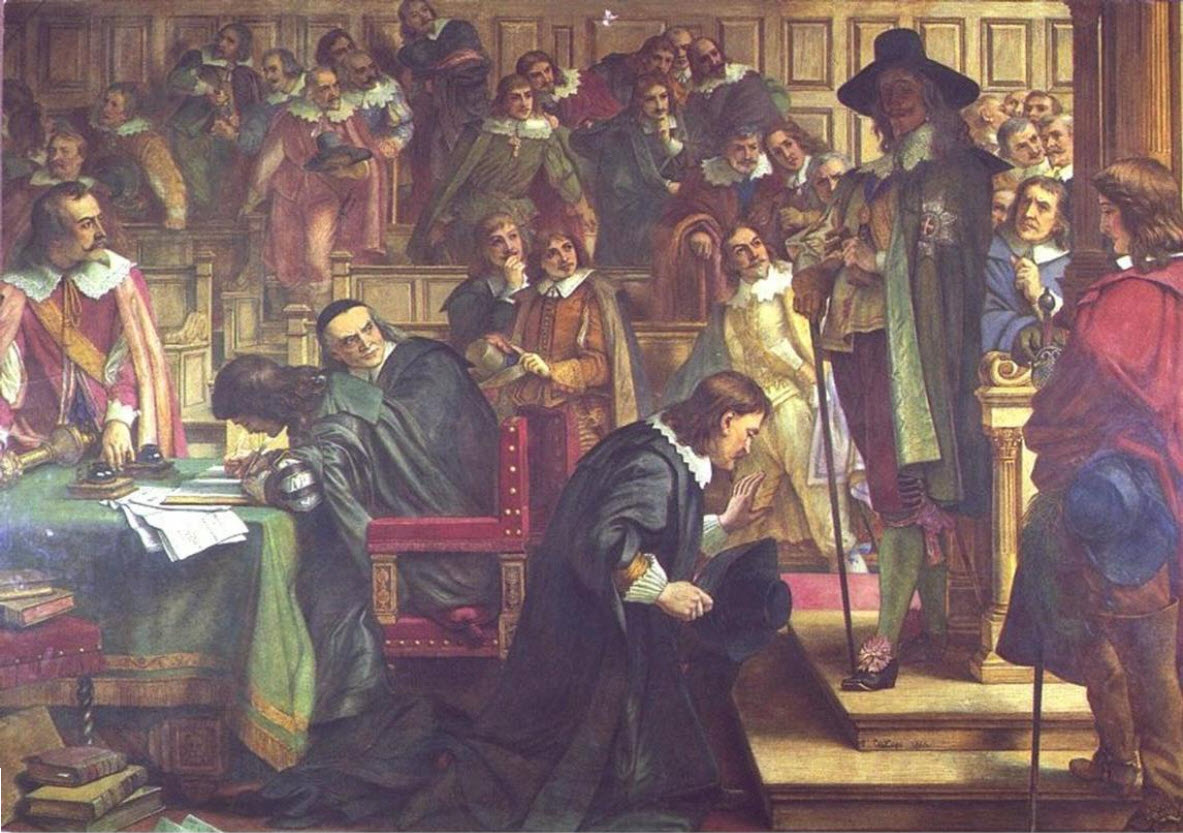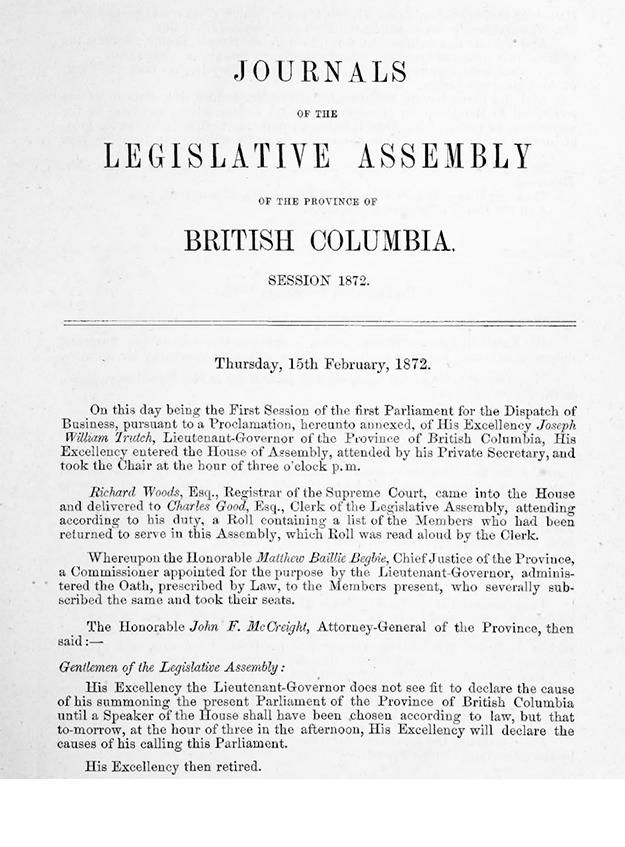The Speaker has been part of the Westminster parliamentary system since 1377. The first person to be called “the Speaker” was Sir Thomas Hungerford. In the beginning, the Speaker was responsible for carrying messages, often complaints or grievances, from the people’s representatives to the king or queen. This explains the title of “Speaker” - the one person empowered to speak to the monarch on behalf of Parliament.
At the time, the Speaker advised Parliament of the monarch’s wishes and conveyed to the monarch Parliament’s response. This was a potentially hazardous profession with several Speakers being executed for their involvement in the political affairs of the realm. This rather bloody and dangerous past explains why a Speaker today, upon election, will pretend to be reluctant to take the Speaker’s Chair and must be "dragged" to the front of the Legislative Chamber.
The first Speakers were not appointed by Parliament but by the monarch. The Speaker was there to manage Parliament on behalf of the king or queen, not to serve as an impartial arbiter of proceedings. As the power of Parliament grew, the Speaker was no longer the agent of the monarch. In the famous incident of 1642, Speaker Lenthall refused the demand of King Charles I to produce five Members for arrest with his famous speech: “I have neither eyes to see nor tongue to speak in this place but as the House is pleased to direct me, whose servant I am here.” By the end of the 17th century, the Speaker was a fully independent appointee of the House.
On the very first day of the first Parliament in B.C., February 15, 1872, Lieutenant Governor Trutch would not continue with the opening proceedings because a Speaker had not yet been chosen. With Trutch absent, the Members elected James Trimble as the first Speaker, and the following day, the Lieutenant Governor returned and read the inaugural Speech from the Throne. To this day, the Lieutenant Governor will not open a Parliament until a Speaker has been elected.
- Sir John Bussy, Speaker 1394-8: Beheaded 1399
- William Tresham, Speaker 1439-42, 1447, 1449-50; Murdered 1450
- Thomas Thorpe, Speaker 1453-54; Beheaded 1461
- Sir John Wenlock, Speaker 1455-6; Killed at the Battle of Tewkesbury 1471
- Sir Thomas Tresham, Speaker 1459; Beheaded 1471 (son of William Tresham)
- William Catesby, Speaker 1484; Beheaded 1485
- Sir Richard Empson, Speaker 1491-2; Beheaded 1510 (on the same day as Dudley)
- Edmond Dudley, Speaker 1504; Beheaded 1510 (on the same day as Empson)
- Sir Thomas More, Speaker 1523; Beheaded 1535


